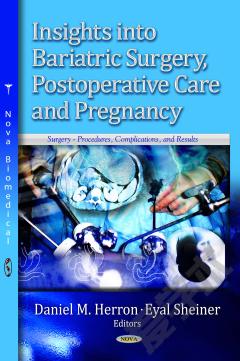Insights into Bariatric Surgery, Postoperative Care and Pregnancy
The worldwide problem of obesity has increased to epidemic proportions over the last several decades and continues to grow. Obesity is now a leading cause of morbidity and mortality in the western world. Due to the limited success of dieting, lifestyle changes and medical therapy, bariatric or weight-loss surgery has become increasingly important in the fight against obesity. At this time, bariatric surgery – now commonly called metabolic surgery – has been shown to be the most effective and durable treatment for obesity. This book provides the reader with a comprehensive, evidenced-based and updated review of all aspects relating to bariatric surgery. The introductory chapters provide a broad overview of basic concepts such as the epidemiology of obesity, its medical treatment and related psychological issues. Preoperative evaluation of the bariatric patient and selection of the most appropriate operation is thoroughly discussed. The different types of operations and their risks and benefits are examined in depth. The text also focuses on practical issues in postoperative management and nutritional follow-up. Specific attention is given to pre-pregnancy and pregnancy considerations including pregnancy outcome following bariatric surgery and the optimal bariatric-pregnancy interval. Written by international experts, this book is a valuable resource for a broad spectrum of clinicians and healthcare professionals dealing with obesity. It also serves as a pragmatic reference for all those involved in the care of bariatric or obese patients who are considering bariatric surgery. Medical and nursing students as well as residents in surgery, medicine, obstetrics/gynecology, and family practice will also benefit from it at any stage of their training.
{{comment.content}}








 京公网安备 11010802027623号
京公网安备 11010802027623号